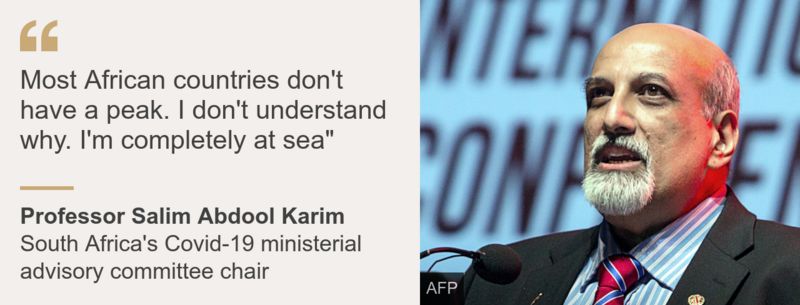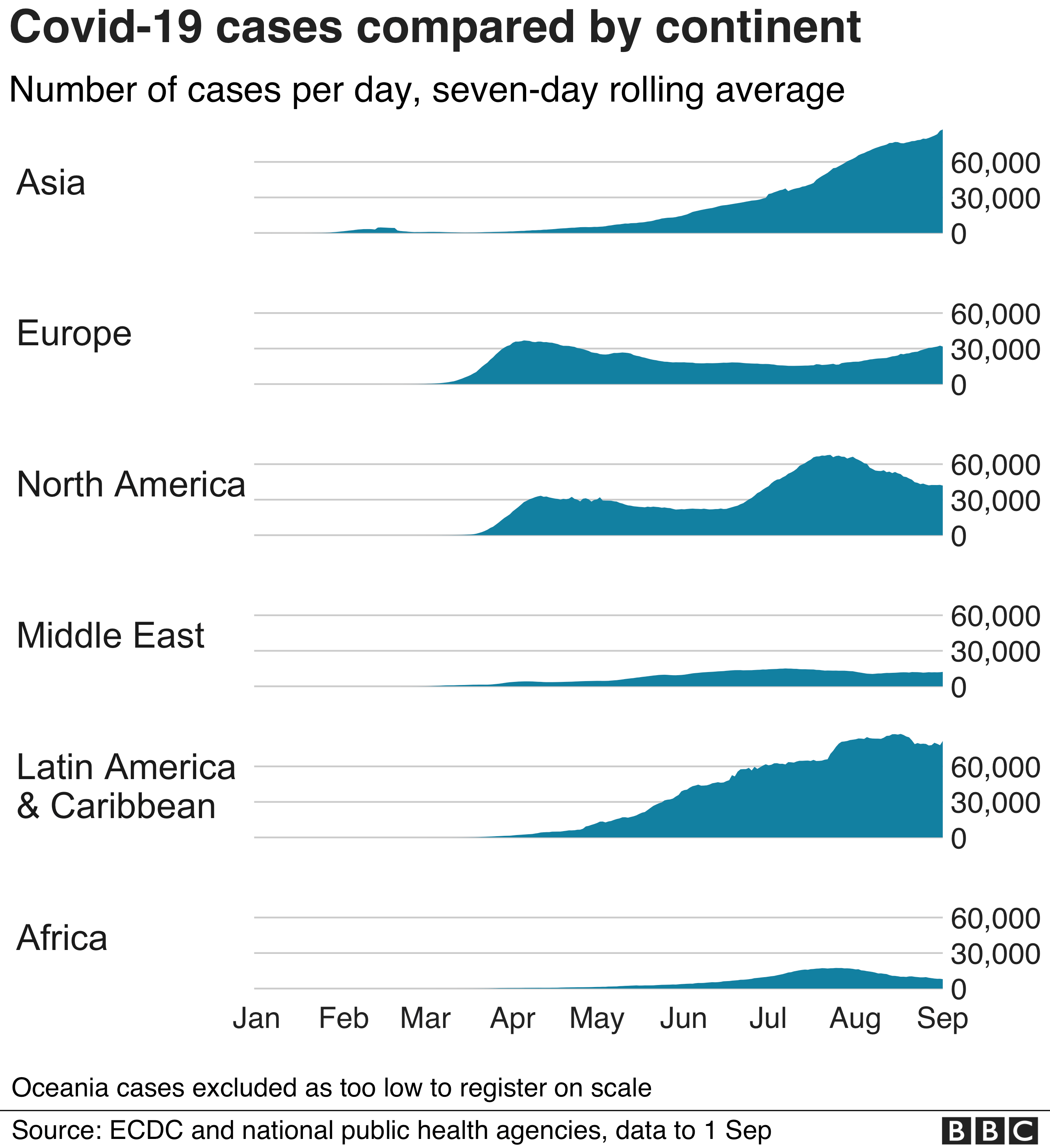Infection and death rates in many African countries have turned out to be much lower than initially feared. As the number of infections dips sharply in South Africa, experts there are exploring a startling hypothesis, as our Africa correspondent Andrew Harding reports from Johannesburg.
Crowded townships. Communal washing spaces. The impossibility of social distancing in communities where large families often share a single room...
For months health experts and politicians have been warning that living conditions in crowded urban communities in South Africa and beyond are likely to contribute to a rapid spread of the coronavirus.
"Population density is such a key factor. If you don't have the ability to social distance, the virus spreads," said Professor Salim Karim, the head of South Africa's ministerial advisory team on Covid-19.
But some experts are now posing the question, what if the opposite is also true? What if those same crowded conditions also offer a possible solution to the mystery that has been unresolved for months? What if those conditions - they are asking - could prove to give people in South Africa, and in similar settings globally, some extra protection against Covid-19?
"It seems possible that our struggles, our poor conditions might be working in favour of African countries and our populations," said Professor Shabir Madhi, South Africa's top virologist and an important figure in the hunt for a vaccine for Covid-19.
In the early stages of the pandemic, experts across Africa - echoed by many leaders - appeared to agree that the continent faced a severe threat from the virus.
"I thought we were heading towards a disaster, a complete meltdown," said Professor Shabir Madhi.
Even the most optimistic modelling and predictions showed, for example, that South Africa's hospitals - and the continent's most developed health system - would be quickly overwhelmed.

And yet, today South Africa is emerging from its first wave of infections with a Covid-19 death rate roughly seven times lower than Britain's.
Scientists acknowledge that reliable data is not always easy to come by and all these figures are likely to change. But even if deaths have been under-reported here - perhaps by a factor of two - South Africa has still performed impressively well, as have many other parts of the continent, where many hospital beds remain empty, and where infection graphs have almost entirely avoided the pronounced peaks and sharp angles seen in so many other parts of the world.
By Andrew Harding
BBC Africa correspondent, Johannesburg
BBC Africa correspondent, Johannesburg
Fonte:bbc.com


